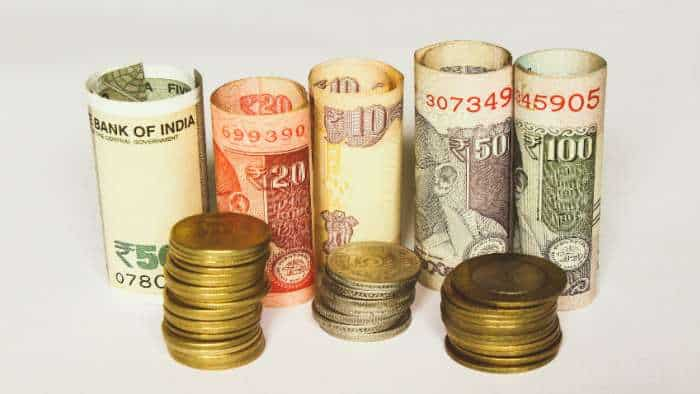G20 development ministers' conclave adopts India-backed action plan on SDGs
)
An ambitious seven-year action plan put forward by India to accelerate progress on the sustainable development goals (SDGs) by the G20 countries through an inclusive roadmap was on Monday adopted by a conclave of the development ministers of the influential grouping. It also adopted another document that aimed to enhance cooperation and partnerships for sustainable lifestyles to complement climate mitigation.
In his address at the conclave, External Affairs Minister S Jaishankar, delving into various challenges, said the prospects for a global economic recovery remains dim amidst supply chain disruptions, prolonged debt crisis and pressures on energy, food and fertiliser security. "As the world struggles with the multiple interlinked crises that have emerged, we have witnessed a painful illustration of that very interlinked nature of the sustainable development goals," he said. "It is in this context that India has put forward an ambitious seven-year action plan for accelerating progress on the SDGs which presents a coordinated, integrated and inclusive roadmap for G20 actions," he added.
The outcome documents adopted by the development ministers shall be submitted for consideration by the G20 leaders at the grouping's summit to be held in New Delhi on September 9 and 10. Jaishankar said the action plan on the SDGs would not only galvanise a strong G20 commitment to the development agenda but also put forward transformative actions in three core areas.
The areas specified by Jaishankar are fostering data for development, investing in women-led development and securing globally just transitions to help ensure the future survival of the planet.
Chairing the conclave, Jaishankar said the world today faces unprecedented and multiple crises and that as always, in such times, the weak and the vulnerable bear the brunt. "From the pandemics to disruptions in supply chains, from the impact of conflict to climate events, our era is becoming more volatile and uncertain by the day. Added to this is stubborn inflation, rising interest rates and shrinking fiscal space for many nations," he said. "If progress towards the SDGs was already falling short before COVID-19, this has only been further exacerbated by it," he said.
Jaishankar said the transformative actions listed in the action plan for SDGs will act as a force multiplier for accelerating progress and will contribute to a more effective and stronger multilateral system. India hosted the conclave in its capacity as the current chair of the G20.
In 2015, the UN firmed up a set of 'Sustainable Development Goals' that were focused on ending poverty around the world, protecting the planet and ensuring welfare and prosperity for everyone. "We, as the G20 members, need to be bold in our ambition. We need to come together to address the crisis as one. The theme of the Indian presidency 'One Earth, One Family, One Future' therefore is an urgent call for action," Jaishankar said. "As 'One Earth', we must demonstrate solidarity for those in need. Truly leave no one behind, mobilise resources and direct our efforts where they are most needed," the minister said. "As 'One Family', we must break all silos and destroy all fragmentations. We need to integrate our approaches, build systems that leverage synergies rather than rely on trade-offs. Reinvigorate the systems which deliver on our agendas and ensure that all voices at home and outside are equally heard and taken into account," he added.
Jaishankar said the development ministerial meeting of the G20 is an opportunity for "us to demonstrate solidarity on these development issues". "The decisions we make today have the potential to contribute to an inclusive, sustainable and resilient future," he said.
The external affairs minister noted that the climate change continues unabated with a "disproportionate impact" on the least developed countries and small island developing states. "The SDG agenda is a landmark not only in its universality in that it applies to all the countries, but also in its integrity in that it can only be successful as a comprehensive agenda," he said. "Unfortunately, since its adoption in 2015, not only have we seen the political momentum wither, but we also witnessed fragmentation in international priorities where some goals are deemed more important than others. Such cherry picking is not in our collective interests," he said.
The external affairs minister also said that it is essential to constantly strengthen the international architecture and governance systems for the protection of global order, laws, and global values.
"In doing so we would invariably find ourselves on the path where diplomacy, dialogue and cooperation take precedence over competition, conflict and divisions. Choosing peace, cooperation and multilateralism is essential for building our collective future," he said. The G20 development ministers' conclave follows the Voice of the Global South Summit that was hosted by India in January, and the decisions taken at the Varanasi meet will also contribute to the UN summit on sustainable development goals in September.
Get Latest Business News, Stock Market Updates and Videos; Check your tax outgo through Income Tax Calculator and save money through our Personal Finance coverage. Check Business Breaking News Live on Zee Business Twitter and Facebook. Subscribe on YouTube.
RECOMMENDED STORIES

Top 7 Flexi Cap Mutual Funds With up to 52% SIP Return in 1 Year: Rs 20,000 monthly SIP investment in No. 1 fund has generated Rs 3.02 lakh; know about others too

Latest FD Rates: Know what SBI, PNB, Canara Bank, HDFC Bank, ICICI Bank are providing on 1-year, 3-year and 5-year fixed deposits
08:35 PM IST









 India only G20 nation to achieve climate targets, its efforts surprise world: PM Modi
India only G20 nation to achieve climate targets, its efforts surprise world: PM Modi G20 to work for advancing good governance
G20 to work for advancing good governance IMF, World Bank cite significant progress in debt restructuring cases
IMF, World Bank cite significant progress in debt restructuring cases Brazil's G20 presidency kicks off in Rio with foreign ministers meeting
Brazil's G20 presidency kicks off in Rio with foreign ministers meeting India got everybody to the table: EAM Jaishankar on unanimous adoption of G20 Declaration
India got everybody to the table: EAM Jaishankar on unanimous adoption of G20 Declaration